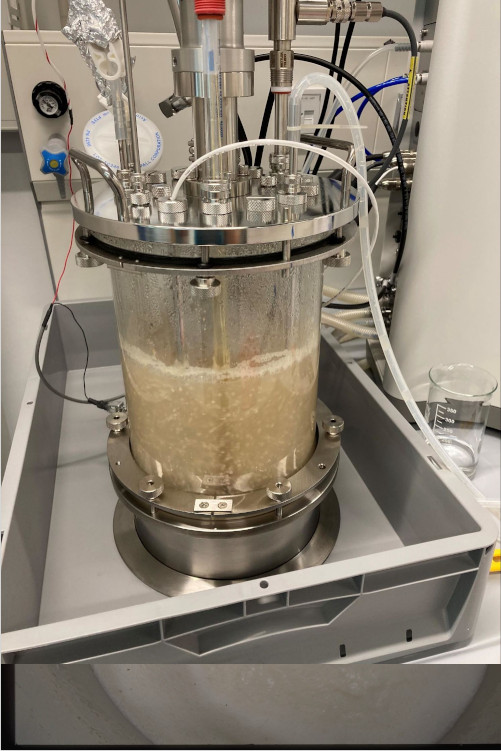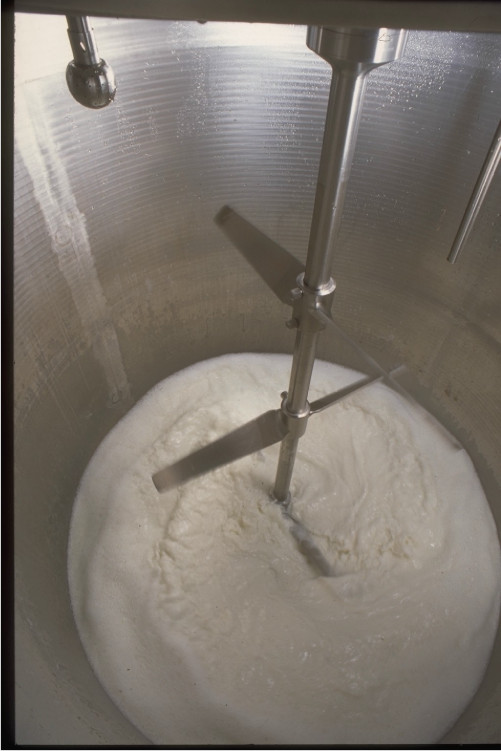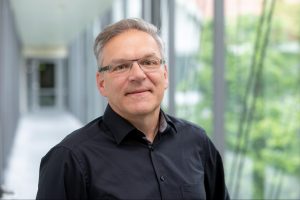What is the role of Fraunhofer within the Smart Protein project?
Fraunhofer is involved in both the processing of plant proteins, the up-cycling of corresponding side-streams, and the development of plant-based food prototypes. A key activity is the target-oriented development and optimisation of sustainable processes for the production of protein concentrates and isolates from alternative raw materials such as fava beans, lentils, chickpeas, and quinoa, as well as their implementation on a pre-commercial scale, together with the industrial partners. Another focus area is the fermentation of food-production side-streams with edible fungi, in order to use the resulting biomass in food products. Our core activity is to develop plant-based, protein-rich prototypes of meat and seafood alternatives by applying high- and low-moisture extrusion technologies and to scale-up and validate these processes in an industrially relevant environment.
Why did you decide to join the Smart Protein project?
The Smart Protein project is a follow-up to the successful Protein2Food project in which Fraunhofer developed technologies for the production of promising new alternative plant-based ingredients and scaled them up from lab to pilot plant scale. Smart Protein’s groundbreaking approach will help us to further improve and scale up these technologies, together with leading industry partners in the multilateral consortium, and pave the way to the commercialisation of a range of highly innovative new-protein foods. Moreover, our involvement in the up-cycling of side-streams from these processes and from other food-production residues through fungal fermentation allows us to further develop expertise with regards to the production of new fungal-based food products.
What are the benefits this project brings to your organisation and to Europe and European citizens in general?
The participating Fraunhofer institutes have been playing a leading role in the processing of plant-based raw materials and the development of plant-protein ingredients and foods for more than 20 years. The aim of the project is to increase the consumption of plant-based foods in Europe and to help build a future-proof protein supply by crafting sustainable and nutritious alternative proteins. Together with the upcycling of side-streams and zero-waste management, the project’s aims align completely with our mission statement. Being part of such a multilateral network, including scientific experts and leading food companies, offers great opportunities for cooperation and business development. From a scientific perspective, we will have the opportunity to work with new protein sources and widen our knowledge on processing them to ingredients and on their application for the development of new plant-based foods for European consumers. In addition, we can learn more about fungal-fermentation strategies and improve the knowledge derived from our fungal strain collection.


Picture 1: Fermenter from Fraunhofer IME representing Fungi fermentation (Copyright: Fraunhofer)
Picture 2: Protein extraction in the Fraunhofer IVV’s pilot-plant (Copyright: Fraunhofer)
What are the main challenges faced in the process?
The protein ingredients and food products we are developing from alternative sources need to be of high quality in terms of their nutritious, sensory, and techno-functional properties. On the other hand, the processes we are establishing for their production have to be reproducible, reliable, sustainable, and economically feasible. Bringing these two aspects together is one of the main targets of the project and of our work. At the same time, however, it is also a key challenge since high product quality may require more complex production processes. Another challenge in terms of fungal fermentations will be to identify interesting combinations of side-streams and fungi that result in products which can be used as raw materials or protein sources for new and economically viable food products.
What results from the project are you and your team most excited for?
Working with new protein sources, expanding our knowledge of their processing into innovative, nutritious, and tasty foods, enabling the commercialisation of these foods, offering the consumer more and better plant-based alternatives for their daily diet – all of these areas excite us! In terms of the actual fungal fermentations, a crucial question is whether we will be able to optimise the cultivation conditions. It will be very exciting to gain more insights into how the different side-streams affect fungal growth, aroma, and protein composition.
 Jürgen Bez (Dipl. LM-Ing.) is a food technologist and project manager with extensive experience in both processing and the product development of ingredients from plant-based raw materials, their chemical and technological evaluation, and their application in food systems. He has managed several public- and industry-funded projects and is experienced in international research collaborations. He was project coordinator of the EU capacities project GLUTENFREE and has been involved in several other European projects, including Healthy Profood, Bioprofibre, Bioboard and Protein2Food. Bez is currently involved as Work Package Leader in the H2020 Smart Protein project.
Jürgen Bez (Dipl. LM-Ing.) is a food technologist and project manager with extensive experience in both processing and the product development of ingredients from plant-based raw materials, their chemical and technological evaluation, and their application in food systems. He has managed several public- and industry-funded projects and is experienced in international research collaborations. He was project coordinator of the EU capacities project GLUTENFREE and has been involved in several other European projects, including Healthy Profood, Bioprofibre, Bioboard and Protein2Food. Bez is currently involved as Work Package Leader in the H2020 Smart Protein project.
